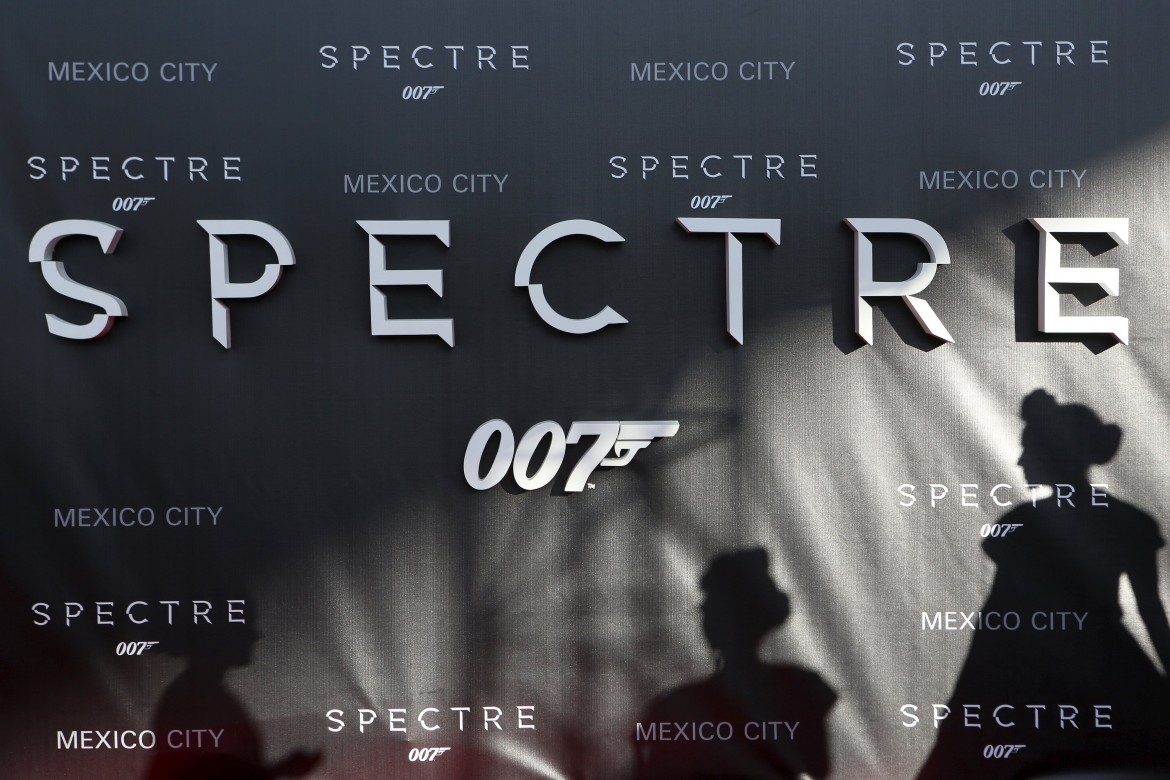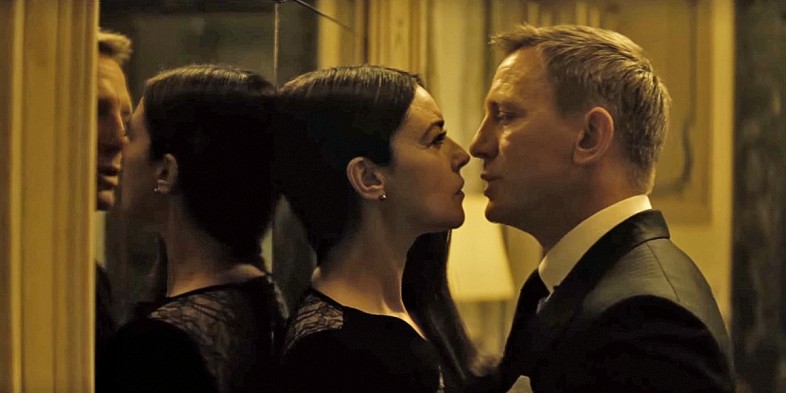Spectre, paramnesis of mass mythology
007 saga 007 actually chases the spectre of the origin – now transformed into the global neo-capitalist threat. But what really leaves a mark is a Rome out of this world, just for this once “beautiful” and “sensuous,” to be rejoiced entirely
 Dancers cast their shadows on a banner promoting the new James Bond 007 film "Spectre" during a red carpet at the Mexican premiere in Mexico City, November 2, 2015 – REUTERS/Ginnette Riquelme
Dancers cast their shadows on a banner promoting the new James Bond 007 film "Spectre" during a red carpet at the Mexican premiere in Mexico City, November 2, 2015 – REUTERS/Ginnette Riquelme007 saga 007 actually chases the spectre of the origin – now transformed into the global neo-capitalist threat. But what really leaves a mark is a Rome out of this world, just for this once “beautiful” and “sensuous,” to be rejoiced entirely
His name is always Bond. James Bond. The general idea is that he has never changed and that nothing will change. Of course, nothing is like before. Even though what allows the collective spell to work is to be convinced that it is always the first time. Paramnesis of mass mythology.
The indisputable success of Skyfall, the previous movie of the Bond franchise as well as present and future touchstone for 007’s next enterprises, lies precisely in the ineluctable – and possibly a bit reactionary, but who cares – melancholy for a comprehensible, readable world, like the one preceding the collapse of prior walls.
Skyfall is to the 007 myth as (N)Ostalgie for the GDR is to unified Germany. Therefore, Sam Mendes could not help trying to reconnect the threads of the plot by placing himself in the hic et nunc of the wasteland of global communication.
Edward Snowden’s shadow is the actual sub-text of Spectre: the global control over information, foreshadowed by Christopher Nolan’s Dark Knight. Ralph Fiennes’ M explains it well when he tries, retroactively, to make the license to kill politically correct by interpreting it as the option to not pull the trigger.
No one should be surprised, then, if the film oozes analogic air (in spite of the show of virtuoso production values), like an adventure from the golden times, with more cartoonish than breath-taking set-pieces along the lines of the Fast&Furious model.
In fact, Spectre seems to have more than one point of contact with the Acme of the Looney Tunes (the corporation that provides Wile E. Coyote with the ludicrous devices to help him catch the Road Runner). It is a ramified, dreadful, implacable, far-flung, obviously lethal, and multi-millionaire organization.
One really would like to suspend disbelief before the planetary threat posed by Spectre, but déjà vu, the essential strategic factor to trigger the evocation of the requisite vintage atmosphere, is so strong that at times it paralyses the pleasure of the fabula.
Oberhauser, the arch-enemy on duty played by Christoph Waltz (who’s come a long way from when, in 1983, he was on a Zurich stage along with Katharina Thalbach playing Thomas Brasch’s Mercedes!), displays complications and emotional disorders by the (psychoanalytic) book toward 007. “It was always me, James…,” he states with satisfaction, almost fearing that anagnorisis does not kick off.
Therefore, hopping from one corner of the globe to another, with a perfect production continuity, 007 actually chases the spectre of the origin – now transformed into the global neo-capitalist threat. As it were, the establishment watchman, who is supposed to protect us from the new watchmen who would like to watch us too closely.
If the transition to disillusionment portrayed in Skyfall was an exemplary one, even boasting the best Bond beginning ever, then Spectre – other than the opening long take – feels like some fatigue, possibly even demotivation (according to Craig, he is not going to make another Bond) has prevailed. As happened in Skyfall (with 007 jumping from a bridge with a motorbike), Spectre too draws from/pays homage to the cinema of Jackie Chan. (The airplane passing through the mountain village re-elaborates the scene with the cars crumbling en masse down the shantytown in Police Story.) Dave Bautista tries hard to look menacing, but the result is too one-dimensional.
The writers might as well have given him a few lines in the script. The French Madeleine Swann (OK, the screenwriters did read Proust), played by the wonderful Léa Seydoux, works well, but what really leaves a mark is a Rome out of this world, just for this once “beautiful” and “sensuous,” to be rejoiced entirely (the analogy with Monica Bellucci is inevitable).
Peppe Lanzetta deserves an ovation. Hopefully we will soon see him again up against 007. Possibly, trying to make James Bond pay for the punch and ensuing wipeout.
- Originally published in Italian at il manifesto on Nov. 5 2015
I consigli di mema
Gli articoli dall'Archivio per approfondire questo argomento
